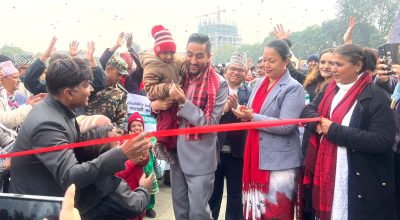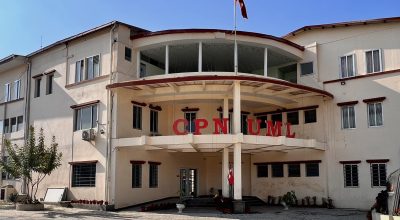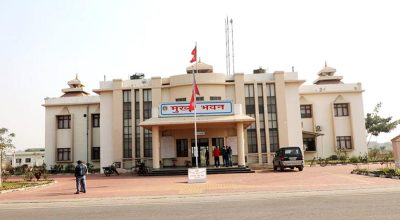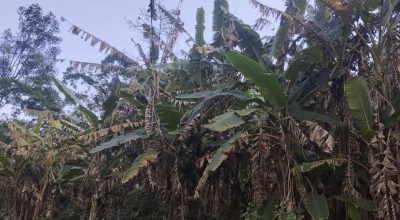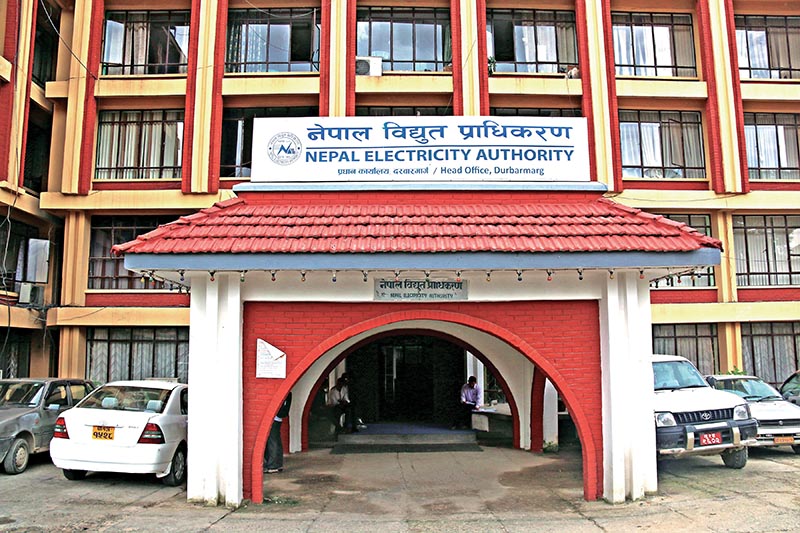
Ramesh Lamsal
Kathmandu, April 16: Shoulder to shoulder efforts and cooperation between the government and the private sector in the development and expansion of electricity considered to be a foundation for the country’s economic prosperity has started bearing fruits.
As we just welcome the Nepali New Year, 2080 BS, approximately 500 megawatts power has been added to the national grid throughout the year, 2079 BS.
Electricity addition has continued, according to the Nepal Electricity Authority (NEA), the public power utility, adding that the country’s total installed capacity would reach around 3,000 megawatts within the current fiscal year, 2022/23 ending mid-July, if this continues.
So far, 2689 megawatts power has been linked with the national grid, it said. Until mid-July, 2023, additional 15 hydropower projects are expected to be over.
In the year, 2079 BS, the total 19 hydropower projects have come into full operation, and the test of nine others has reached the final stage, it has been said.
The biggest project developed by the private sector that has been completed within the year is the Solukhola (Dudhkoshi) Hydroelectricity Project. Inaugurated by Prime Minister Pushpa Kamal Dahal ‘Prachanda’, the project developed by Sahas Urja started commercial production from 1 March, 2023.
Nepal has been already self-sufficient on power during the monsoon season and the situation for the winter is also improving.
Projects with accumulative capacity of 3,280 megawatts are under development and once they complete, the national grid will have around 7,000 megawatts of electricity. The NEA prepares to export around 1,200 MW of electricity in coming rains (monsoon).
According to Independent Power Producers’ Association Nepal (IPPAN), some projects promoted by the private sector are in the phase of test production.
Those projects will begin commercial production following the 15-day test production in the presence of NEA employees. The test production of 19.8-mw Upper Solu River Hydropower Project promoted by the Beni Hydropower has neared the final phase. As said by company managing director Ganesh Karki, the project’s power has been already connected to the national grid and the commercial production is likely within the next few days.
Likewise, the 14.9-mw Mayakhola Project based in Sankhuwasabha district will be starting commercial production very soon.
The 5-MW Rukumgad Project based in Rukum, the Sindhupalchowk-based Ghattekhola Project of around one megawatt will be entering to the phase of commercial production.
The 54-MW Super Dordi ‘B’ in Lamjung and the 2-mw Solar Power Project in Nawalparasi, 6.8-mw Solar Power Project in Morang and 10-mw in Banke have been already connected to the national grid.
As the NEA stated, the 10-mw capacity Makarigad Project also started commercial production from this year. Based in Darchula, this project has contributed in managing power supply in the Sudurpaschim province.
NEA executive director Kulman Ghising has directed the construction companies concerned to complete the construction of Rasuwagadhi, Sanjen and Mid Bhotekoshi hydel projects by the end of the current fiscal year. These projects are being constructed through the public-private partnership model.
Rasuwagadhi project has a total capacity of producing 111 megawatts, the Upper and Lower Sanjen 57 megawatts and the Mid Bhotekoshi project 102 megawatts. Once the power produced from these projects is connected to the national grid, it would make a positive impact on the power supply sector.
NEA had exported 425 megawatts electricity to India in the year 2079 BS. It has made an income equivalent to Rs 8.44 billion in the current fiscal year through power export alone. Preparations are being made to export 1,200 megawatts excess power in this fiscal year.
Important talks were held in the year 2079 BS with India for power trade. An agreement has also been reached with Bangladesh for exporting 50 megawatts power initially.
The process of constructing the New Butwal-Gorakhpur 400 kV transmission line has moved ahead. The government has registered a company and forwarded the process of building the 1,200 megawatt capacity Budhigandaki Hydroelectricity Project.
Indian companies have shown interest in constructing some big projects. The Indian company, NHPC, has moved ahead the necessary process for the construction of the 750-mw-capacity West Seti and the 450-mw Seti River-6 Project.
Foreign investment has been gradually attracted in the energy sector. In the same way, the domestic investors are preparing to go ahead with the construction of projects with a capacity of generating 1,553 mw power, IPPAN’s executive member Prakash Dulal said.
The total production capacity of the under-construction projects and those that are in the process of construction is 4,834 mw. Electricity has reached nearly 96.5 percent households.
Seen in this backdrop, the year 2079 BS has become an important year for the development and expansion of the energy sector.












